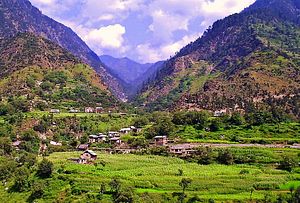It is quite something for India to be among the leaders of internet shutdowns in the world, leaving warzones like those in Iraq and Syria behind to follow, while never even acknowledging the presence of conflict zones in the nation.
I lived in Kashmir during the entire period of the 2016 uprising and what was probably the world’s longest e-curfew ever, when the internet was cut off for five to six months straight. Although analysts tend to look at the economic impact of actions like these, which is huge and back-breaking for any economy, the psychological impact is just as severe.
As I woke up on September 27, the day after I reached Srinagar for a wedding, there were multiple encounters going on in Chdoora in Budgam, Qazigund, in Anantnag, and Noorbag in Srinagar. It goes without saying that the internet was immediately cut off in all these locations.
The militants managed to flee, but one civilian was killed in Noorbag. I heard the news later, but waking up without the internet, the first thoughts were – What happened now? Where? How long will this internet shutdown long this time? How will I file this article? It’s the same helplessness every Kashmiri lives with – only, every single day, and without recourse.
Former CNN India bureau chief and current Foreign Policy Managing Editor Ravi Agrawal recently launched his new book in New Delhi, called India Connected, which is about how smartphones are transforming India. It has a very important chapter on Kashmir. Agrawal is delicate and precise in bringing out the frustrations of young people of Kashmir in the book. With schools and colleges closed and nowhere to go, their restless minds sit at home, either staring blankly into television screens or at the walls.
There are more and more cases of psychological problems being reported in Kashmir. The Institute of Mental Health and Neurosciences (IMHANS) Kashmir in collaboration with ActionAid Association, with support from Directorate General of Humanitarian Aid and Civil Protection (ECHO), came out with a study in 2017 that 11.3 percent of the adult population in Kashmir suffers from mental illnesses. While they specifically did not see the impact of internet shutdowns, it is an important aspect to examine, given how one is completely disconnected from all sorts of information, and connection with the outside world.
Yet, more importantly, Agrawal is astonished at how the Indian media hasn’t been writing more about this. As a person who has spent most of his time in the West, he is bewildered how there is no big protest in India against the internet shutdowns in Kashmir, and how is it going on in the world’s biggest democracy without serious questions being raised. Meanwhile, according to Kashmiris, the unwitting support of Indian citizens by being passive is an indication of their backing to the government.
A couple of weeks ago in Pulwama town of south Kashmir’s Shopian district, militants had started uploading videos of Special Police Officers (SPOs) resigning from their jobs, creating an embarrassment for the government. The drama started after the government picked up separatist militant outfit Hizbul Mujahideen chief Riyaz Naikoo’s father, followed by militants picking up the relatives of police personnel and a spate of killings of SPOs and relatives.
The internet was cut off as the government came to know of the resignation videos, and has been out for a week now. People don’t expect it to be resumed for the next four months, or at least till the end of the Panchayat (village representative) elections, which are to be concluded by October’s end. The civilians are again at the receiving end of a situation created entirely by the misjudgement of the government. Interestingly, as it happens almost always, most of the people in India are oblivious to this painfully long internet curfew going on currently.
If you live in Kashmir, it is important that you have the state service provider BSNL’s landline phone and broadband connection. During the 2016 uprising, apart from the internet, pre-paid phones were also cut off for long durations, followed by post-paid connections which had it slightly better. The BSNL landlines and broadband connections were the only ones spared, mostly because all the top politicians and the state government officials avail those services, and these connections are not easily available to the general public. I have written about this earlier with details of lost days, and its impact on my own health.
Since the Indian government has repeatedly shied away from giving an explanation behind these frequent and unjustifiably long internet shutdowns, human right advocates, activists and journalists have been sceptical about the intention. It is increasingly becoming a tool to shut out voices coming from Kashmir, and other conflict zones. To deny the alternate narratives and reporting from these regions, it is imperative to control the means of distribution in this otherwise, globally connected world.

































